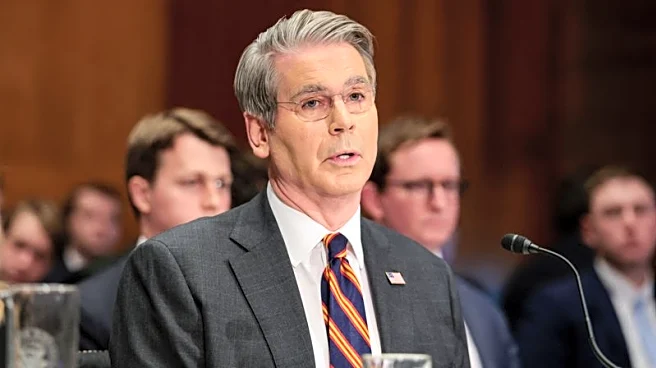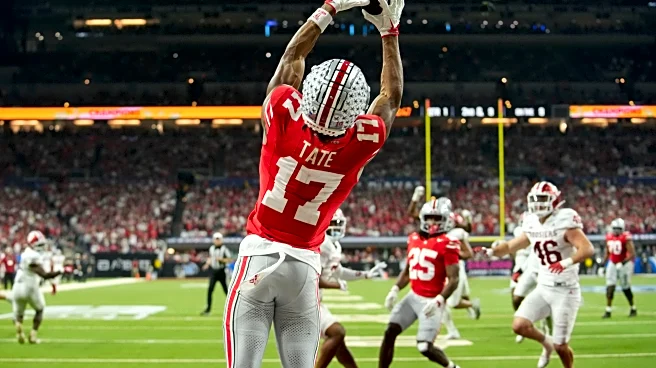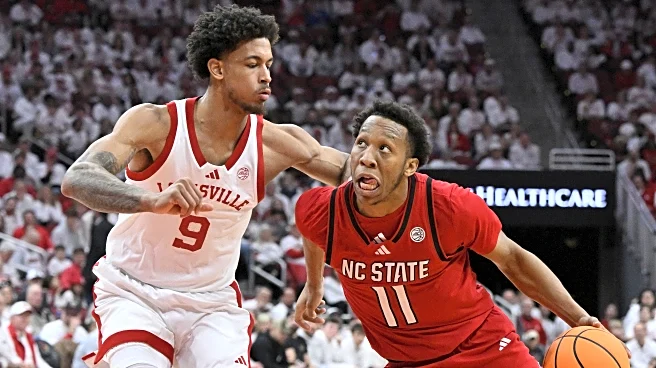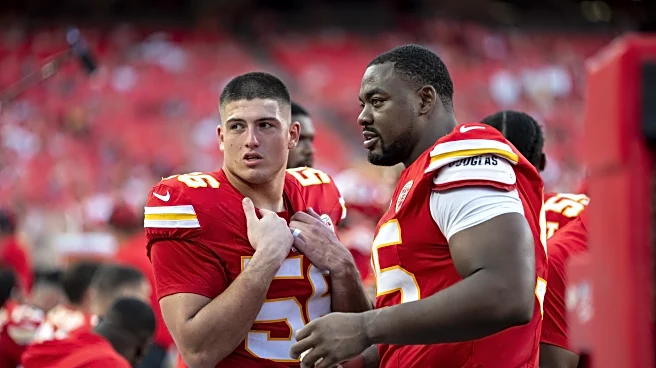Rapid Read • 8 min read
President Trump has announced a temporary federal takeover of the Washington, D.C. police force, deploying 800 National Guard troops to address crime in the capital. During a news conference, Trump described Washington as overrun by criminals, despite official statistics showing a 30-year low in violent crime. The move is part of Trump's broader strategy to use military force for domestic objectives, following previous deployments to Los Angeles and the U.S.-Mexico border. Washington's attorney general has criticized the action as unprecedented and unlawful, while protesters have gathered near the White House. The federal control is expected to last 30 days.
AD
Trump's decision to federalize the Washington police force raises significant concerns about the use of military power in domestic governance. Critics argue that this sets a dangerous precedent for federal intervention in local affairs, potentially undermining democratic principles and civil liberties. The move may exacerbate tensions between federal and local authorities, impacting public trust and political stability. Trump's actions could influence public perception of crime and safety, affecting policy discussions and electoral outcomes. The situation highlights the ongoing debate over the balance of power between federal and state governments.
The federal takeover of the police department is set to last 30 days, during which time the effectiveness of the deployment in reducing crime will be assessed. Legal challenges may arise from local officials and advocacy groups, questioning the legality of Trump's actions. The administration will likely focus on maintaining public order and addressing criticisms, while political leaders may push for legislative measures to prevent similar federal interventions. The broader implications for U.S. governance and civil rights will continue to be debated, with potential impacts on future administrations and policy decisions.
Trump's use of military force in Washington, D.C. reflects broader themes of power consolidation and the militarization of domestic politics. The situation raises ethical questions about the role of the military in civilian affairs and the potential erosion of democratic norms. The move may influence cultural perceptions of safety and security, shaping public attitudes towards government authority. Long-term shifts in political discourse and public policy could be triggered by this development, affecting future administrations and governance strategies.
AD
More Stories You Might Enjoy












